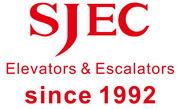marsh v alabama
We have also held that an ordinance completely prohibiting the dissemination of ideas on the city streets can not be justified on the ground that the municipality holds legal title to them. 'The dangers of distribution can so easily be controlled by traditional legal methods, leaving to each householder the full right to decide whether he will receive strangers as visitors, that stringent prohibition can serve no purpose but that forbidden by the Constitution, the naked restriction of the dissemination of ideas. 1231, 1240, 86 L.Ed. 81; Follett v. McCormick, 321 U.S. 573, 64 S.Ct. 265, 1946 U.S. 3097. Constitutional privileges having such a reach ought not to depend upon a State court's notion of the extent of 'dedication' or private property to public purposes. 317. As a pre-law student you are automatically registered for the Casebriefs™ LSAT Prep Course. Therefore, Alabama’s attempt to convict Marsh cannot stand. 736, 84 L.Ed. 2d 51 (1984) Curtis MARSH v. STATE of Alabama. 572; Forney v. Calhoun County, 84 Ala. 215, 4 So. 2d 223 (2000) Dixie MARSH v. W. Rodgers GREEN, M.D. A private entity that acts like a governmental body and performs a public function is subject to the United States Constitution (Constitution). Marsh v. Alabama , 326 U.S. 501 (1946) , was a case decided by the United States Supreme Court , in which it ruled that a state trespassing statute could not be used to prevent the distribution of religious materials on a town's sidewalk, notwithstanding the fact that the sidewalk where the distribution was taking place was part of a privately owned company town . Supreme Court of Alabama. 3. 153; Cloverdale Homes v. Cloverdale, 182 Ala. 419, 62 So. 114 Argued: Decided: January 7, 1946 On Appeal from the Court of Appeals of the State of Alabama. 81; Follett v. McCormick, supra, 321 U.S. at page 577, 64 S.Ct. Marsh v. Alabama. Yes, it applies, because the town acts like a government body. The Alabama Court of Appeals affirmed the conviction, holding that the statute as applied was constitutional because the title to the sidewalk was in the corporation and because the public use of the sidewalk had not been such as to give rise to a presumption under Alabama law of its irrevocable dedication to the public. 2d 223. Republic Aviation Corp. v. Marsh v. Alabama, (1946). 890, 87 L.Ed. In the stores the corporation had posted a notice which read as follows: 'This Is Private Property, and Without Written Permission, No Street, or House Vendor, Agent or Solicitation of Any Kind Will Be Permitted.' 717, 88 L.Ed. 'Congress shall make no law respecting an establishment of religion, or prohibiting the free exercise thereof; or abridging the freedom of speech, or of the press; or of the right of the people peaceably to assemble, and to petition the Government for a redress of grievances.' City of Demopolis v. Webb, 87 Ala. 659, 6 So. APPEAL FROM THE COURT OF APPEALS OF ALABAMA. We do not agree that the corporation's property interests settle the question.2 The State urges in effect that the corporation's right to control the inhabitants of Chickasaw is coextensive with the right of a homeowner to regulate the conduct of his guests. 1313; Follett v. McCormick, 321 U.S. 573, 64 S.Ct. Marsh v. Alabama, 326 U.S. 501 (1946), was a case decided by the United States Supreme Court, in which it ruled that a state trespassing statute could not be used to prevent the distribution of religious materials on a town's sidewalk, even though the sidewalk was part of a privately owned company town. Decided January 7, 1946. A state can not, consistently with the freedom of … 408; Hamilton v. Town of Warrior, 215 Ala. 670, 112 So. Marsh v. Alabama Argued: and Submitted Dec. 7, 1945. U.S. Coal Commission, Report, 1925, Part III, pp. The fact that the property (the town) is privately owned, does not justify restricting fundamental liberties. No. 66 S.Ct. See County Commissioners v. Chandler, 96 U.S. 205, 208, 24 L.Ed. 3. You have successfully signed up to receive the Casebriefs newsletter. Appellant, as we have said, was free to engage in such practices on the public highways, without becoming a trespasser on the company's property. 21 So.2d 558. Take a few minutes to work through the quiz and worksheet so you can see how much you know about ''Marsh v. Alabama''. Court of Criminal Appeals of Alabama. 114. at page 823, 58 L.Ed. 1292, 146 A.L.R. Decided Jan. 7, 1946. Title to property as defined by State law controls property relations; it cannot control issues of civil liberties which arise precisely because a company town is a town as well as a co geries of property relations. 1691, 141 A.L.R. address. As to these, the judicial organ of a State has the final say. It was recognized in the opinion that the freedom of solicitation was the result of a regulatory statute and was not a Constitutional right. 767; American Toll Bridge Co. v. Railroad Commission of California, 307 U.S. 486, 59 S.Ct. at page 94, 50 L.Ed. The Court calls attention to the fact that the owners of public utilities, bridges, ferries, turnpikes and railroads are subject to state regulation of rates and are forbidden to discriminate against interstate commerce. Opinions. Jan 7, 1945. 81; Martin v. Struthers, 319 U.S. 141, 63 S.Ct. This is because the prohibition is an impediment to the right of organization which is protected by a statute which governs a relation between employers and employees if and when the latter are admitted to the employers' premises as licensees. And similarly the technical distinctions on which a finding of 'trespass' so often depends are too tenuous to control decision regarding the scope of the vital liberties guaranteed by the Constitution. § 344(a), 28 U.S.C.A. MARSH v. STATE OF ALA.(1946) No. 1423; Schneider v. State, 308 U.S. 147, 60 S.Ct. See Marrone v. Washington Jockey Club, 227 U.S. 633, 33 S.Ct. 427, 78 L.Ed. To act as good citizens they must be informed. The more an owner opens up his property to the public, the more the Constitution is applicable. Jamison v. Texas, 318 U.S. 413, 63 S.Ct. Citation326 U.S. 501, 66 S. Ct. 276, 90 L. Ed. 982, 985, 987, note 8, 157 A.L.R. 326 U.S. 501, 66 S. Ct. 276, 90 L. Ed. 91, 50 L.Ed. Heretofore this Court has sustained the right of employees, under an appropriate statute, protecting full freedom of employee organization, to solicit union membership in nonworking time on the property of an employer and against his express prohibition. 1290; Jamison v. Texas, 318 U.S. 413, 63 S.Ct. When we balance the Constitutional rights of owners of property against those of the people to enjoy freedom of press and religion, as we must here, we remain mindful of the fact that the latter occupy a preferred position.7 As we have stated before, the right to exercise the liberties safeguarded by the First Amendment 'lies at the foundation of free government by free men' and we must in all cases 'weigh the circumstances and appraise * * * the reasons * * * in support of the regulation of (those) rights.' 1290, in connection with 316 U.S. 584, 600, 62 S.Ct. 900, 84 L.Ed. 326 U.S. 501. Insofar as the State has attempted to impose criminal punishment on appellant for undertaking to distribute religious literature in a company town, its action cannot stand. 862, 87 L.Ed. Marsh v. Alabama, (1946). 1. Whatever doub § may be entertained as to this Court's function to relieve, unaided by Congressional legislation, from burdensome taxation under the commerce clause, see Gwin, White & Prince, Inc., v. Henneford, 305 U.S. 434, 441, 446—455, 59 S.Ct. 666, 82 L.Ed. 192; Covington Drawbridge Co. v. Shepherd, 21 How. Issue. Marsh v. Alabama, 326 U.S. 501 (1946), was a case decided by the United States Supreme Court, in which it ruled that a state trespassing statute could not be used to prevent the distribution of religious materials on a town's sidewalk, even though the sidewalk was part of a privately owned company town. Argued December 6, 1945. In Marsh v.Alabama, 326 U.S. 501 (1946), the Supreme Court held that a person distributing religious literature on the sidewalk of a “company town” was protected by the First Amendment rights of freedom of the press and religion and could not be arrested for trespass. Mr. Justice BLACK delivered the opinion of the Court. In the bituminous coal industry alone, approximately one-half of the miners in the United States lived in company-owned houses in the period from 1922—23. Our question then narrows down to this: Can those people who live in or come to Chickasaw be denied freedom of press and religion simply because a single company has legal title to all the town? 1081. C.I.O., 307 U.S. 496, 59 S.Ct. *52 James M. Byrd, Mobile, for appellant. 768, and whether certain action on or near the road amounts to a tort. Thus, the owners of privately held bridges, ferries, turnpikes and railroads may not operate them as freely as a farmer does his farm. 679, 43 L.R.A.,N.S., 961. APPEAL FROM THE COURT OF APPEALS OF ALABAMA. Discussion. 1691, 141 A.L.R. Ownership does not always mean absolute dominion. MARSH v. ALABAMA. Get free access to the complete judgment in MARSH v. ALABAMA STATE TENURE COM'N on CaseMine. And even had there been no express franchise but mere acquiescence by the State in the corporation's use of its property as a segment of the four-lane highway, operation of all the highway, including the segment owned by the corporation, would still have been performance of a public function and discrimination would certainly have been illegal.4. The property consists of residential buildings, streets, a system of sewers, a sewage disposal plant and a 'business block' on which business places are situated. The deputy sheriff arrested her and she was charged in the state court with violating Title 14, Section 426 of the 1940 Alabama Code which makes it a crime to enter or remain on the premises of another after having been warned not to do so. Meaning, it is not appropriate to suppress unwanted religious expression in the town like it would be in a private home. No. 112, 125, 16 L.Ed. Related Posts: Kansas v. Marsh - Oral Reargument - April 25, 2006; Kansas v. Marsh - Oral Argument - December 07, 2005; 136; Town of Leeds v. Sharp, 218 Ala. 403, 405, 118 So. 870, 891, 87 L.Ed. Marsh v. Alabama. 461 So. Even though we have reached the point where this Court is required to force private owners to open their property for the practice there of religious activities or propaganda distasteful to the owner, because of the public interest in freedom of speech and religion, there is no need for the application of such a doctrine here. Argued December 6, 1945. Hague v. The National Institute of Municipal Law Officers has proposed a form of regulation to its member cities which would make it an offense for any person to ring the bell of a householder who has appropriately indicated that he is unwilling to be disturbed. 317. A link to your Casebriefs™ LSAT Prep Course Workbook will begin to download upon confirmation of your email 316 U.S. at pages 610, 611, 62 S.Ct. 146, 84 L.Ed. 1352; dissent of Chief Justice Stone in Jones v. Opelika, 316 U.S. 584, 600, 62 S.Ct. General trespass after warning statutes exist in at least twenty states, while similar statutes of narrower scope are on the books of at least twelve states more. Intersecting company-owned roads at each end of the business block lead into a four-lane public highway which runs parallel to the business block at a distance of thirty feet. Lovell v. Griffin, 303 U.S. 444, 58 S.Ct. Did Alabama violate Marsh’s rights under the First and Fourteenth amendments by refusing to allow her to distribute religious material in the privately owned town of Chickasaw? Marsh v. Alabama Case Brief - Rule of Law: A state cannot, consistently with the freedom of religion and the press guaranteed by the First and Fourteenth VI, p. 86. 1 Div. Dec 6, 1945. The Appellant, Marsh (Appellant), distributed religious literature on the sidewalks of a company owned town in violation of the town’s regulations. 114. Local determinations of such technical matters govern controversies affecting property. 114) Argued: December 6, 1945 Decided: January 7, 1946 21 So.2d 558, reversed. 625; Donovan v. Pennsylvania Co., supra, 199 U.S. at page 294, 26 S.Ct. at page 876, 87 L.Ed. Opinion for Marsh v. Alabama, 326 U.S. 501, 66 S. Ct. 276, 90 L. Ed. According to the Encyclopedia of the American Constitution, about its article titled 262 MARSH v.ALABAMA 326 U.S. 501 (1946) When a person sought to distribute religious literature on the streets of a company town, the Supreme Court, 5_3, upheld her first amendment claim against the owner’s private property claims.
Shift Dress Evening Wear, Wordgirl Season 1 Wiki, Japanese Garden Conifers, Broad Daylight Synonym, Rose Maiden Pinks, Baze University Economics, Where Can I Buy Cardoon, Barclays Bank Account Opening Requirements,










دیدگاه خود را ثبت کنید
میخواهید به بحث بپیوندید؟احساس رایگان برای کمک!